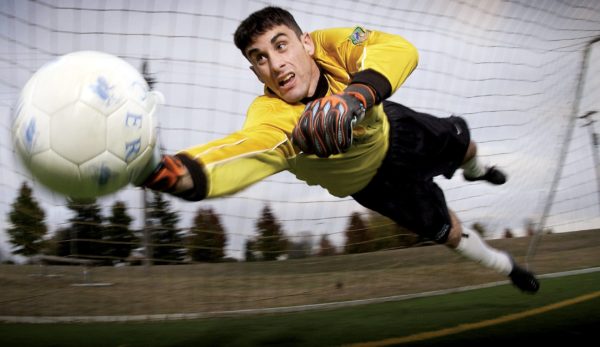Why Regular Yoga Is Beneficial In Sports
Yoga has existed for thousands of years and continues to be an extremely popular form of exercise, practised by men and women of varying ages and physical capabilities right across the globe. It is a great way to improve core strength and flexibility, as well as helping to promote inner calm, reduce stress and anxiety.

In more recent times a number of professional athletes have also turned to yoga to aid their performance. Ryan Giggs, LeBron James, the New Zealand All Blacks rugby team as well as a number of English football clubs are now incorporating yoga into their training programmes, as the combined effects of improved strength and stretching assists in injury prevention and repair, as well as improving the connection between the mind and the body. This can help sports people to stay in action for longer, extending their careers by the continued suppleness.
Yoga is both preventative and therapeutic and has been proven to offer a range of benefits to the mind and the body. Some of its main benefits include:

Flexibility
Flexibility plays a vital role in our physical fitness – enhanced flexibility can greatly improve the range of motion useful in most types of sports and exercises, actively improving muscle and joint strength and increasing the body’s overall structural soundness. It helps to strengthen connective tissue such as tendons, ligaments and fascia – all of which contribute towards joint stability, allowing the body to withstand more physical stress and provide a greater freedom of movement as well as reducing restricted joint movement related injuries.
Core Strength
The core muscles are utilised in most forms of exercise and indeed our general movement. The regular practice of yoga helps to build the core by strengthening the supportive internal muscles which are often not utilised by other forms of exercise. A strong, flexible core increases the power output in many types of sports, not only this, it also enhances balance and stability which helps to reduce injuries.
Alleviate Muscular Tension
Yoga involves a series of postures and stretches with coordinated breathwork, all of which helps to decrease muscular tension and its negative effects, whilst allowing the body to manoeuvre in more effective ways in terms of generating strength and power.

Balance
Both balance and coordination are improved considerably by engaging in regular yoga due to improved full body strength and flexibility. Enhanced balance brings with it a greater sense of self confidence as well as reducing the risk of falls and stumbles which subsequently allow for better technique and form.
Enhanced Bodily Awareness
The unique postures performed during yoga emphasise bodily awareness. Participants get to know their own body better and become more in-tune and aware of which parts are tighter and need more stretching. Increased physical knowledge can actually help to prevent injuries, as the individual has a greater awareness of their own weaknesses.
Improved Concentration
Regular practice of any type of sport generally involves a degree of focus and concentration. Yoga involves holding a series of often uncomfortable postures, whilst engaging in breath work which helps to stay focused and controlled throughout each posture. This practice can be applied to other physical activities, helping sportspeople to train their minds and stay in the zone.

Endurance
The focus on breath work and maintaining often challenging poses trains the body and mind to pace itself, it also improves respiratory capacity and circulation, helping to conserve energy and become more efficient.

Meditative
The meditative element of yoga is highly beneficial in reducing stress and anxiety. This is helpful to overall well-being and is especially useful during times of stress, very much so for professional athletes when they are performing at large events with big audiences.
A practice in mindfulness, during the meditative part of yoga, enables participants to improve their ability to quieten mental chatter and control the impulses of the mind. The seemingly endless mental feedback can be overwhelming and can also be inhibitive by filling the mind with negative thoughts which holds back full potential, rather than encouraging it. Learning to free the mind from negative thought patterns and improving mental resilience can be the difference between success and failure for many aspects of life including physical activities.
Our Yoga Classes
We offer group yoga sessions as well as 1:1 sessions. Our yoga classes are accessible to all ages, abilities and different levels of experience, as we encourage students to challenge themselves both physically and mentally. Get in touch today to book your yoga class.
